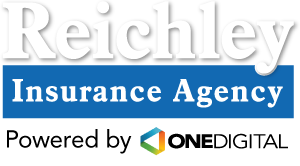The ADU Impact Home Insurance
Are you considering adding an Accessory Dwelling Unit (ADU) to your property? Whether it’s a backyard cottage, garage conversion, or basement apartment, ADUs can provide a convenient and affordable way to increase living space and generate rental income. However, it’s essential to understand how ADUs impact your home insurance.
In this blog, we’ll explore the world of ADUs, their benefits, and what you need to know about insuring these additional structures.
What are Accessory Dwelling Units (ADUs)?
ADUs are secondary housing units on a property, either attached or detached from the primary residence. They can be:
- In-law suites
- Guest houses
- Backyard cottages
- Garage conversions
- Basement apartments
ADUs offer numerous benefits, including:
- Increased living space
- Rental income opportunities
- Aging-in-place solutions
- Sustainable housing options
How Do ADUs Affect Home Insurance?
- Adding an ADU can impact your home insurance in several ways:
- Increased value: ADUs increase your property’s value, which may require higher insurance coverage.
Additional risk: ADUs introduce new risks, such as tenant damage or liability.
- Separate insurance policy: Depending on the ADU’s size and use, you may need a separate insurance policy.
Insuring Your ADU: Key Considerations
When insuring your ADU, keep the following in mind:
- Dwelling coverage: Ensure your policy covers the ADU’s structure and contents.
- Liability coverage: Consider increasing liability coverage to protect against tenant-related accidents.
- Rental income coverage: If you rent the ADU, consider coverage for lost rental income due to damage or repairs.
- Discounts: Ask about discounts for features like security systems, smoke detectors, and impact-resistant roofing.
Accessory Dwelling Units offer a versatile solution for expanding living space and generating income. However, it’s crucial to understand how ADUs impact your home insurance. By considering the unique risks and requirements of ADUs, you can ensure you have the right coverage to protect your investment.
Before building or insuring an ADU, consult with your insurance provider to determine the best course of action for your specific situation. With the right coverage, you can enjoy the benefits of your ADU with peace of mind.












